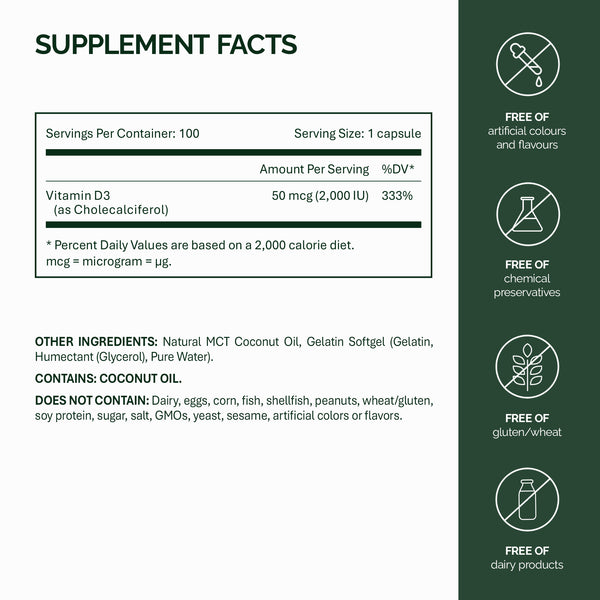
Vitamin D, often referred to as the "sunshine vitamin," plays a crucial role in various bodily functions, including bone health, immune function, and mood regulation. Over the years, research has highlighted the widespread prevalence of vitamin D deficiency across different populations worldwide. This raises the question: has vitamin D deficiency reached pandemic proportions? This article examines the factors contributing to the prevalence of vitamin D deficiency and its potential implications for global health.
Prevalence of Vitamin D Deficiency
The prevalence of vitamin D deficiency varies across different regions and populations. Several factors contribute to this widespread deficiency, including:
- limited sun exposure due to lifestyle factors,
- air pollution,
- use of sunscreen,
- and cultural practices such as wearing concealing clothing.
Studies have reported alarming rates of vitamin D deficiency in various populations, including children, adolescents, adults, and the elderly.
Research conducted in the United States found that over 40% of the population had insufficient vitamin D levels. Similar trends have been observed in Europe, Asia, and other regions, indicating a global health concern.
Consequences of Vitamin D Deficiency
Vitamin D deficiency has been linked to numerous adverse health outcomes. Insufficient vitamin D levels are associated with an increased risk of bone diseases such as osteoporosis, rickets in children, and fractures in adults. Furthermore, vitamin D plays a crucial role in modulating the immune system, and its deficiency has been implicated in autoimmune diseases, respiratory infections, and certain cancers.
Moreover, emerging research suggests a potential link between vitamin D deficiency and chronic diseases such as cardiovascular disease, diabetes, and mental health disorders. These findings underscore the importance of addressing vitamin D deficiency as a public health priority.
Addressing the Issue
Efforts to address vitamin D deficiency require a multifaceted approach involving public health initiatives, healthcare professionals, policymakers, and individuals. Public health campaigns should raise awareness about the importance of sunlight exposure and encourage behaviors that promote adequate vitamin D levels, such as spending time outdoors and consuming vitamin D-rich foods.
Healthcare professionals play a crucial role in identifying and managing vitamin D deficiency through routine screening, supplementation when necessary, and patient education. Policymakers can support these efforts by implementing policies that promote access to vitamin D supplementation, fortification of food products, and urban planning strategies that facilitate outdoor activities.
Conclusion
In conclusion, vitamin D deficiency has emerged as a significant global health issue, with implications for individuals' well-being and healthcare systems worldwide. The prevalence of vitamin D deficiency is influenced by various factors, including lifestyle, environmental, and dietary factors. Addressing this issue requires collaborative efforts to raise awareness, promote preventive measures, and ensure access to appropriate healthcare interventions. By prioritizing strategies to combat vitamin D deficiency, we can mitigate its adverse health effects and improve the overall health outcomes of populations globally.
References
- Holick MF. The vitamin D deficiency pandemic: Approaches for diagnosis, treatment and prevention. Rev Endocr Metab Disord. 2017 Jun;18(2):153-165. doi: 10.1007/s11154-017-9424-1. PMID: 28516265.
- Mithal A, Wahl DA, Bonjour JP, Burckhardt P, Dawson-Hughes B, Eisman JA, El-Hajj Fuleihan G, Josse RG, Lips P, Morales-Torres J; IOF Committee of Scientific Advisors (CSA) Nutrition Working Group. Global vitamin D status and determinants of hypovitaminosis D. Osteoporos Int. 2009 Nov;20(11):1807-20. doi: 10.1007/s00198-009-0954-6. Epub 2009 Jul 23. PMID: 19636471.
- Cashman KD, Dowling KG, Škrabáková Z, Gonzalez-Gross M, Valtueña J, De Henauw S, Moreno L, Damsgaard CT, Michaelsen KF, Mølgaard C, Jorde R, Grimnes G, Moschonis G, Mavrogianni C, Manios Y, Thamm M, Mensink GB, Rabenberg M, Busch MA, Cox L, Meadows S, Goldberg G, Prentice A, Dekker JM, Nijpels G, Pilz S, Swart KM, van Schoor NM, Lips P, Eiriksdottir G, Gudnason V, Cotch MF, Koskinen S, Lamberg-Allardt C, Durazo-Arvizu RA, Sempos CT, Kiely M. Vitamin D deficiency in Europe: pandemic? Am J Clin Nutr. 2016 Apr;103(4):1033-44. doi: 10.3945/ajcn.115.120873. Epub 2016 Mar 2. PMID: 26912495; PMCID: PMC4807642.











